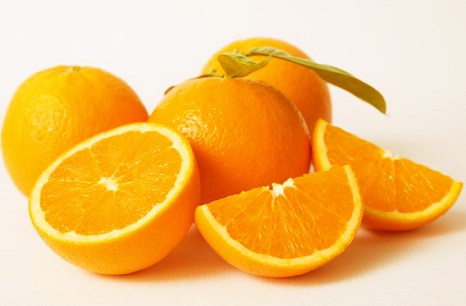Nikhil Prasad Fact checked by:Thailand Medical News Team Oct 21, 2024 1 year, 3 months, 3 weeks, 2 days, 18 hours, 58 minutes ago
Health News: A recent study conducted by researchers from the University of Bari Aldo Moro and the National Institute of Gastroenterology IRCCS “Saverio de Bellis” in Italy examined the effects of a diet enriched with “Navelina” oranges on patients with metabolic dysfunction-associated fatty liver disease (MAFLD). The research aimed to explore how this diet impacts the gut microbiota and the body's metabolomic profile, shedding light on new potential dietary strategies to combat liver-related health issues. MAFLD, which is increasingly prevalent worldwide, is primarily linked to obesity, type 2 diabetes, and metabolic imbalances.
 Italian study finds that daily orange intake may improve fatty liver disease
A Closer Look at MAFLD
Italian study finds that daily orange intake may improve fatty liver disease
A Closer Look at MAFLD
Metabolic dysfunction-associated fatty liver disease (MAFLD) is a condition that affects liver function due to fat accumulation in liver cells, often caused by unhealthy dietary habits, obesity, and insulin resistance. Unlike the older term NAFLD, MAFLD emphasizes the role of metabolic dysfunction in liver diseases. The growing prevalence of MAFLD is a public health concern, with 20-30% of the population in Western countries being affected.
One promising aspect of addressing this health issue lies in dietary modifications. Foods rich in polyphenols, such as oranges, have been noted for their positive effects on metabolic and inflammatory conditions, which are key in the development and progression of MAFLD. This
Health News report discusses how adding orange fruits into daily meals can influence the overall health of patients suffering from liver conditions.
Methodology
The research was designed as a clinical trial involving 62 patients diagnosed with MAFLD, aged between 30 and 65 years. These participants were divided into two groups: one group consumed 400 grams of "Navelina" oranges daily for 28 days, while the control group followed a balanced diet without any citrus fruits. Importantly, all participants were asked to avoid foods rich in vitamin C and other citrus derivatives to isolate the effects of the oranges.
During the study, fecal and urine samples were collected and analyzed using advanced methods such as 16S metataxonomics and gas chromatography - mass spectrometry (GC/MS) to examine the participants' gut microbiota and volatile organic compounds (VOCs).
Key Findings from the Study
The findings were significant, showing that daily orange consumption led to notable changes in both the gut microbiota and the body’s metabolomics profile. Some of the key observations included:
-Changes in Gut Microbiota: The metataxonomics analysis revealed that the orange-enriched diet caused shifts in specific bacterial populations. For instance, there was an increase in beneficial bacteria such as Methanosphaera and Eggerthella, which are linked to improved liver function and metabolic health. On the other hand, harmful b
acteria associated with inflammation and liver dysfunction, such as Senegalimassilia and Negativibacillus, decreased in abundance.
-Improvements in Liver Health Indicators: The study found that patients in the orange-consuming group showed improvements in several key liver health markers, including reduced levels of liver fat (as measured by the CAP score), as well as improvements in blood glucose levels and liver enzymes like Aspartate Aminotransferase (AST) and Gamma-Glutamyl Transferase (γGT).
-Positive Metabolomic Changes: In addition to changes in gut bacteria, the study revealed significant shifts in the concentrations of certain metabolites. For example, increased levels of camphene and linalool were detected in urine samples. Both compounds are known for their anti-inflammatory properties and their role in reducing liver fat accumulation. These changes suggest that orange consumption could help combat the inflammation and fat deposition associated with MAFLD.
-Decreased Harmful VOCs: VOCs associated with liver dysfunction, such as 1-Hexadecanol and dodecane, decreased in patients who consumed oranges. The reduction of these harmful compounds indicates a positive shift in liver metabolism and gut health, further supporting the therapeutic potential of a citrus-rich diet.
Conclusion
This clinical trial provides compelling evidence that incorporating “Navelina” oranges into the daily diet of MAFLD patients can result in beneficial changes to gut microbiota, liver health markers, and metabolomic profiles. The study’s findings suggest that polyphenol-rich foods like oranges could play a crucial role in managing liver diseases linked to metabolic dysfunction.
The observed increases in beneficial bacteria and decreases in harmful VOCs highlight the potential of citrus fruits to restore gut and liver homeostasis. Moreover, the improvement in liver enzyme levels and reductions in harmful liver fats provide additional evidence of the positive impact of this dietary intervention.
The results of this study point to the need for further research into how specific foods can modulate gut health and systemic inflammation in patients with liver diseases. With the growing burden of MAFLD worldwide, such dietary strategies could offer a simple and effective approach to managing liver health.
The study findings were published in the peer-reviewed journal: Nutrients.
https://www.mdpi.com/2072-6643/16/20/3543
For the latest
Health News, keep on logging to Thailand Medical News.
Read Also:
https://www.thailandmedical.news/news/australian-study-finds-that-supplementation-with-citrus-bioflavonoids-helps-with-management-of-type-2-diabetes
https://www.thailandmedical.news/news/citrus-pomace-shows-promise-in-combating-intestinal-inflammation
https://www.thailandmedical.news/news/citrus-flavonoid-hesperetin-shows-promise-for-colitis
